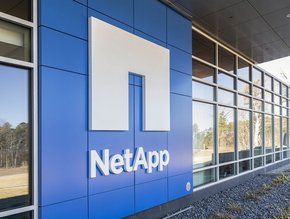Half of organisations fell victim to ransomware attacks

The global threat of ransomware remains at peak levels, with half of organisations across all sizes, regions and industries falling victim in the last year, according to Fortinet’s 2023 Global Ransomware Report.
The report explores cybersecurity leaders’ perspectives on ransomware, particularly how it impacted their organisations in the last year, and their strategies to mitigate an attack.
"According to the Fortinet research, though three out of four organisations detected ransomware attacks early, half still fell victim to them,” commented John Maddison, EVP Products and CMO at Fortinet. “These results demonstrate the urgency to move beyond simple detection to real-time response. However, this is only part of the solution as organisations cited the top challenges in preventing attacks were related to their people and processes. A holistic approach to cybersecurity that goes beyond investing in essential technologies and prioritises training is essential.”
Report finds a growing disconnect between ransomware preparedness and prevention
Fortinet’s research revealed there was a large disconnect between respondents’ level of preparedness with existing strategies and their ability to stop a ransomware attack. Although 78% of organisations stated they were “very” or “extremely” prepared to mitigate an attack, the survey found 50% fell victim to ransomware in the last year, and almost half were targeted two or more times. Specifically, four out of the five top challenges to stopping ransomware were people or process related. The second largest challenge was a lack of clarity on how to secure against the threat as a result of a lack of user awareness and training, and no clear chain-of-command strategy to deal with attacks.
More organisations paying ransoms, despite industry guidance
The survey also found that despite most (72%) detecting an incident within hours, and sometimes minutes, the percentage of organisations paying ransoms remains high, with almost three-quarters of respondents making some form of ransom payment. When comparing across industries, organisations in the manufacturing sector received higher ransoms and were more likely to pay the fee. Specifically, one quarter of attacks among manufacturing organisations received a ransom of $1M or higher. Finally, while almost all organisations (88%) reported having cyber insurance, almost 40% didn’t receive as much coverage as expected and, in some cases, didn’t receive any because of an exception from the insurer.
Security budgets set to increase despite economic uncertainty
With concerns about ransomware still high and despite a challenging global economic environment, nearly all organisations (91%) expect increased security budgets in the next year. Based on the technologies viewed as most essential to secure against ransomware, organisations were most concerned with IoT Security, SASE, Cloud Workload Protection, NGFW, EDR, ZTNA, and Security Email Gateway. When compared to 2021, the number of respondents citing ZTNA and Secure Email Gateway increased by nearly 20%. Given email phishing remained the most common attack entry method for the second time, it was promising to see respondents view Secure Email Gateway (51%) with higher importance, however, other essential protections, such as Sandboxing (23%) and Network Segmentation (20%) remained low on the list.
In the future, top priorities for respondents will be investing in advanced technology powered by AI and ML to enable faster threat detection and central monitoring tools to speed response. These investments will help organisations combat a rapidly evolving threat landscape as cyber attackers become more aggressive and deploy new elements into attacks.
Enhancing ransomware protection through a platform approach
In addition, the report found that organisations using point products were the most likely to fall victim to an attack in the last year, while those who had consolidated to a smaller number of platforms were the least likely to be a victim. Further, almost all respondents (99%) viewed integrated solutions or a platform as essential to preventing ransomware attacks. These findings underscore the importance of leveraging a unified platform approach to defend against ransomware.
Fortinet supports organisations looking to improve their processes and advance cybersecurity skills by providing services such as Incident Readiness Assessments and Tabletop Exercises, Ransomware Readiness Assessments, SOC-as-a-Service, and SOC Readiness Assessments, as well as comprehensive training from one of the largest programs in the industry, the Fortinet Training Institute. With its industry-leading Security Fabric of over 50 natively integrated, enterprise-grade products, Fortinet continues to be the leading vendor helping organisations consolidate their point products into a unified cybersecurity platform. This platform approach, with open APIs and a robust Fabric-Ready technology alliance ecosystem, enables CISOs and security teams to reduce complexity, increase efficacy in the prevention and detection of ransomware, and speed incident triage, investigation and response.
- NetApp Cloud Complexity: Reliable Data is Key to AI SuccessCloud & Cybersecurity
- AMD: Expansion, Growth and Doubling Down on AI InnovationAI & Machine Learning
- Globant to Drive Formula 1’s Digital TransformationDigital Transformation
- HPE: Businesses Must Tackle Blind Spots in AI StrategiesIT Procurement






